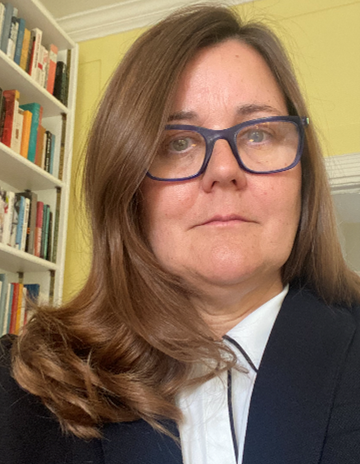
Jo Brown, of 4PB, reveals that while undertaking pro bono work can be a ‘run of the mill’ small commitment, the impact for the client can be immeasurable.
What makes a busy practitioner take on a four-week case pro bono in the High Court where there are four other parties represented by leading and junior counsel, where there is a 25,000-page bundle, where there is complex medical evidence, and where the potential consequences for the client are life-changing?
The romantic in me would like to say that my inner lodestone is set to the gravitational pull of justice (with a nod to the Poet Laureate Simon Armitage, and his reference to his "inner lodestone being innately tuned to the gravitational pull of the north"), but there is more to it than that.
Taking on this case gave me an opportunity to lead a junior colleague, Jo Porter, who shared the work with me. It gave me the experience of immersing myself in the scientific and medical literature relating to salt ingestion. It pitted me against leading practitioners in my field. It tested my strategic and forensic mettle. All good reasons.
But, justice is at the centre of pro bono work. When I heard that a non-English speaking carer had appeared at a case management hearing at which she was given the bundle and told that she would need to participate in a long hearing during which five medical experts would be giving evidence, where she would be expected to question the experts, other professionals and the parents, her former employers, how could I sit back and assume that someone else would step in to help her?
How else would she have a fair trial without pro bono representation? She did not qualify for public funding, and she could not afford to pay privately. She could not even afford the travel costs to attend court. When Jo Porter and I met her in conference, it was clear that she had barely understood what was happening at court and, more importantly, the gravity of what could happen.
On her behalf we challenged the evidence which could inculpate her, and we assisted her in presenting all the information about her background and involvement with the child and the family which was relevant to the judge’s determination as to what had happened to the child and who was responsible.
In the final judgment, the court determined that no findings could be made against her and went further, entirely exonerating her from any involvement in the harm suffered by the child. She left the proceedings with an unblemished record and the judge referred to her as an exemplary carer.
In our final submissions to the court, Jo Porter and I said that it had been a privilege to represent our client. It had been a privilege to make a difference to her life, to the lives of her children and to her partner. It had been a privilege to enable her to have full access to justice.
That is the importance of pro bono work and this year I took on another case for an intervenor in care proceedings. This time it was a grandmother who had cared for her grandchild during a period when the child had suffered fractures. The medical evidence was not voluminous, it was not complex, the bundle was small - but the impact for the grandmother was just as serious as the carer of the disabled child.
If the grandmother were found to have inflicted injury, or been in a pool of potential perpetrators for inflicted injury, she would be unlikely to have contact with her grandchild, she would have no prospect of caring for the child if they were not able to be cared for by their parents, and it may have prevented her from having unrestricted time with her other grandchildren.
Through Advocate, I was able to provide advice to the grandmother; I met her in conference and drafted her statement. My analysis of the medical evidence together with her statement formed the foundation of an application at a case management hearing for the grandmother to be discharged as an intervenor. The application was successful. The grandmother is now in a position to be fully assessed as a long-term carer for the child and to have unsupervised contact.
My representation of the grandmother was a small commitment in terms of time; it was, in my line of work, ‘run of the mill’ but, the impact for my client was immeasurable.
So, what is my message? Any pro bono commitment makes a difference, a real difference. Do it. What’s stopping you?
Jo Brown from 4PB specialises in serious and complex children cases in public law – care proceedings. She represents children, parents (and other family members or intervenors), and local authorities in cases concerning infant fatality, poisoning, factitious and induced illness, non-accidental injury, and sexual abuse. In 2022, together with her colleague Jo Porter, she represented an intervenor in care proceedings pro bono who had been a carer for a severely disabled child, who had ingested salt, and it was alleged that the carer may have poisoned him.